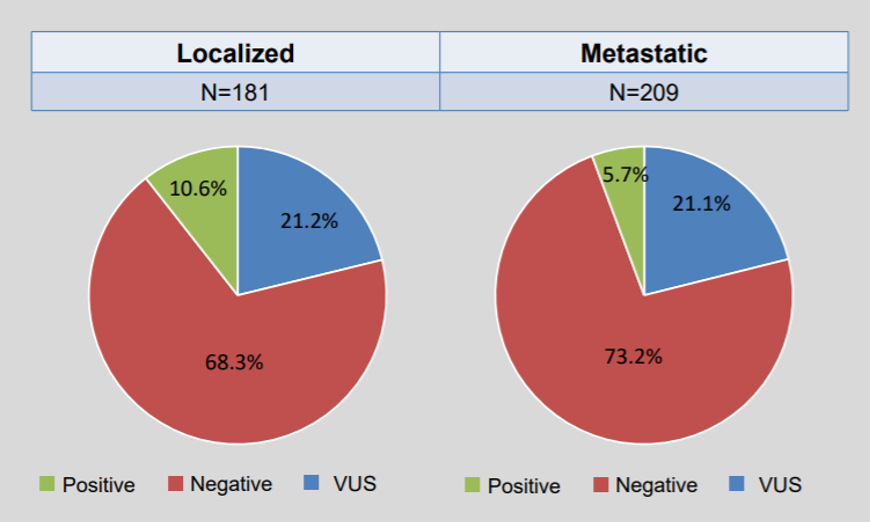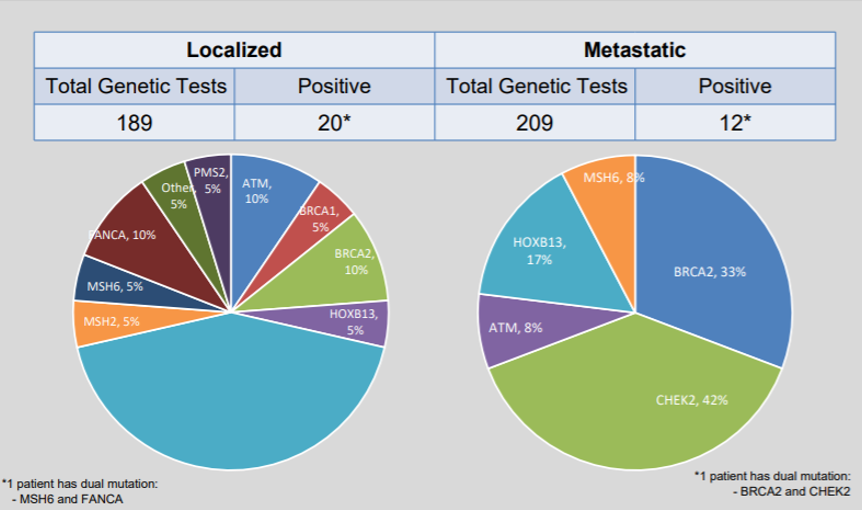AUA 2020: Detection Of Germline Mutations in Localized and Metastatic Prostate Cancer Through Guideline-Bas... - UroToday
The authors utilized a single institutional cohort of men diagnosed with prostate cancer at Michigan Medicine and Michigan Institute of Urology (MIU) between 2017 and 2019. These men were offered multi-gene panel testing in accordance with NCCN BRCA-Related Breast and/or Ovarian Cancer Syndrome (HBOC) guidelines. Patient data was tracked in a prospectively collected registry, and rates of pathogenic/likely pathogenic mutations and variants of uncertain significance (VUS) were compared according to patient demographic and disease characteristics.
Over the three years of the study interval, 299 patients underwent testing, including 150 men with metastatic PCa and 149 with localized prostate cancer (PCa). Median age was 69 (39-98) and the vast majority (92%) were Caucasian.
Interestingly, rates of pathogenic/likely pathogenic germline mutations were lower in patients with metastatic disease (5.3%) than those with localized disease (11.4%).

The most common mutations were in CHEK2 (44%), ATM (12%) and BRCA2 (12%), and FANCA (8%).

The authors conclude that a meaningful proportion of men with both localized and metastatic prostate cancer have potentially actionable mutations, particularly in key DDR genes.
Presented by: Randy Vince, MD, Department of Urology, University of Michigan, Ann Arbor, MI
Co-Authors: Jake Quarles, Michelle Jacobs, Mallory Luke, Samuel Kaffenberger, Simpa Salami, Sanjay Das, Marissa Solorzano, Elena Stoffel, Sofia Merajver, Jason Hafron, and Todd Morgan
Written by: Christopher J.D. Wallis, Urologic Oncology Fellow, Vanderbilt University Medical Center, Twitter: @WallisCJD at the 2020 American Urological Association (AUA) Annual Meeting, Virtual Experience #AUA20, June 27-28, 2020.


Comments
Post a Comment